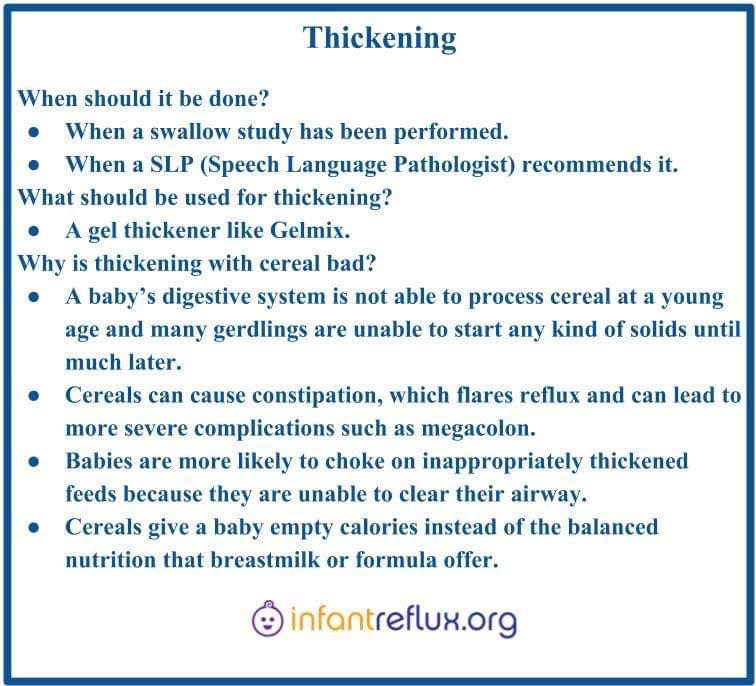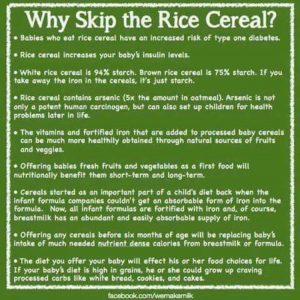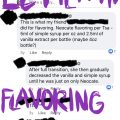To Thicken or Not to Thicken?
Sarah Camp, March 2021

Interview with a Pediatric Speech Language Pathologist
She regularly conducts swallow studies and advises parents how to thicken for their specific children if needed!
[Nadine M., Pediatric SLP]:
Thickening liquids is sometimes beneficial to minimize aspiration. But before this modification can be done, a videofluoroscopy swallow study (VFSS) needs to be completed first.
There are times when thickening may not help reduce risk and may even increase it. This cannot necessarily be known by just watching a baby or child drink. The only way to know for sure is to visualize the swallow with a VFSS.
After a swallow is completed, thickened liquid residue can be present and accumulate with multiple swallows. This can pose aspiration risk as there is now milk above an open and unprotected airway, with risk of aspiration after the swallow reflex.
In some instances, drawing thicker fluid from a nipple causes increased work of breathing and disorganized suck/swallow/breathe. Volume can decrease due to the increased effort causing fatigue before goal intake is met. Caloric intake can be compromised. A VFSS can also shed light on whether the baby or child maintains endurance while also preserving quality of safe swallow.
Other strategies may be found to be safer than thickening (position changes, altering nipple flow rate, different cup or straw, pacing). If thickening is found to be the safest strategy, the correct thickness and product will be suggested at this time (research International Dysphagia Diet Standardisation Initiative or IDDSI for most current descriptives of textures).
Thickening is not a “one size fits all” solution to improving swallow safety. Make sure your infant or child has a feeding plan and compensatory feeding strategies individualized to him or her. A swallow study is an integral part of developing a safe feeding plan when aspiration is a concern.
*VFSS is synonymous for MBSS: Modified Barium Swallow Study. Different hospitals use different terms.
Sarah C. writes: Nadine, what would you say to parents whose doctors are telling them to thicken their baby’s feedings *before* a swallow study, because they are concerned that baby may be aspirating? How should caregivers respond to these providers?
Martha C. writes: Sarah, I’d push for a swallow study asap if there is any concern of aspiration. Knowing appropriate thickness is important and as mentioned there are impacts to thickening as well. If your child aspirates there is a great fb group called pediatric dysphagia and aspiration which is a wealth of knowledge on how to safely deal with this, questions to ask Drs, weaning from thickened to thin liquids safely when cleared by Drs etc
Nadine M. writes: Sarah, parents need to demand a swallow study. Ask for an “urgent” referral if aspiration is suspected to expedite scheduling. If infant or child is ill, and cannot wait for an outpatient appointment, consider admitting for an inpatient work up. If a VFSS isn’t a possibility, another option is a Fiberoptic Endoscopic Evaluation of Swallow (FEES). Thickening without knowing how much, what nipple flow rate can be used, etc not only is unsafe but can cause oral aversions, decreased intake, weight loss, dehydration. Have physician contact an SLP to review the case and get opinion of how to proceed, whether it’s an appropriate referral.
Sarah C. writes: Nadine, when thickened feeds are indicated by swallow study results + interpretation by a SLP, what should parents use to thicken feeds? Cereals or a commercial thickener?
Nadine M. writes: Sarah, cereal is not an efficient thickener, and isn’t particularly safe for younger infants. It tends to clump and can plug a nipple hole. The on/off or fast/slow flow can be confusing to an infant who already has feeding challenges. The infant is required to constantly adjust suck strength to either suck harder to draw fluid and the plug out followed by the sudden unplug and increased flow requiring a less vigorous suck. Sudden flow increases can cause choking. Cereal cannot be used to thicken breast milk, can be constipating and adds carbohydrates. Use a commercial product designed to thicken. There are products that can be used for breast milk and other liquids.
Sarah C. writes: Nadine, one last question from me for our moms (& dads!), should thickening be used as a treatment for reflux? To keep feeds from “coming back up,” as opposed to safely going “down”?
Thank you for your insights & the time you took to write this for us!
Nadine M. writes: Sarah, this one is out of my scope of practice , however my opinion is that there are safer ways for reflux management via diet changes and medications. Issues go back to all complications of cereal in bottles mentioned above, and it’s not developmentally appropriate to spoon feed to a young infant.
Thickening as a Treatment of Reflux
Here’s the bottom line and most important thing to consider: thickening is not an effective treatment of reflux. Research has consistently demonstrated this. Please see these studies for more information:
- Lack of Efficacy of Thickened Feeding as Treatment for Gastroesophageal Reflux (Journal of Pediatric Gastroenterology)
- The Effect of Thickened-Feed Interventions on Gastroesophageal Reflux in Infants (Journal of the American Academy of Pediatrics)
- A Systematic Review of Nonpharmacological and Nonsurgical Therapies for Gastroesophageal Reflux in Infants (JAMA Pediatrics)
It seems like many people are drawn to thickening as a first line of defense against reflux instead of medications, thinking it’s a safer alternative to medication. This is very far from the reality. In fact, it often causes more problems than it may potentially solve. For example, thickening formula or breast milk with may actually lead to worsened lower GI issues such as constipation. Constipation and intra-abdominal pressure that results from it exacerbate reflux. Children may even have allergic reactions, such as FPIES, to the agents being used to thicken.
Katie E. writes: To those asking, you never thicken without a swallow study because if baby is aspirating, you want to know what level to thicken to. There’s a specific amount you need to thicken specific to what your baby aspirated during the study. Oatmeal and rice are never a good choice.
Using Cereal to Thicken

We here at InfantReflux.org do not endorse using infant cereal (ex: rice or oatmeal), or any type of grain whatsoever to thicken, even if thickening has been deemed medically necessary via a swallow study overseen by a Speech Language Pathologist. The risks far outweigh any potential benefit. The best option we have seen, as a collective group, in working with many parents over the years, is GelMix. It is the easiest to digest and the most well-tolerated. [If your child is prescribed GelMix, please do not be alarmed if they begin having tiny dark specks in their poop. This is just the GelMix.]
Doreen M. writes: Usually simply thick or gelmix is suggested due to possible aspirating. I really do not think if it is to the point where they have to have a thickening agent due to health concerns that they ever suggest cereal to thicken. I understand you did not ask me but from my research is it usually GI or pediatricians that mention it more for “weight” to help with reflux. But for babies having aspirating issues other thickening agents are suggested as well as cooler temps of the liquid.
Another issue with giving cereals as a thickener is that the vast majority of the time, it is being done by doctors because they feel that babies are “too young” for medicine or “just need to gain more weight to outgrow the reflux.” Usually in these cases, the babies are definitely younger than six months, sometimes as young as a few weeks old. This is far younger than the recommended age for starting solids. Please visit the following links below to learn about why it’s so important to wait until your Gerdling’s gut is ready, and hold off on the cereals!
- Why Babies Shouldn’t Eat Grains
- 15 Reasons Not to Feed Rice Cereal (or Any Solids) Too Early
- Delaying Solids Due to Open Gut
- Toddler Gut Health
- Causes of Leaky Gut
- Leaky Gut
- Eating This Can Tear Holes in Your Gut
- CDC Says Solids Are Being Given Too Early
- KellyMom Reasons to Delay Solids
Personal Experiences
C.R. writes: Laura Heller Bennett I want to say you were right that my son really should have had a swallow study done before being told to thick his bottles. The GI doctor we saw Friday told us to do all the wrong things and we are currently sitting in the children’s hospital which he was transported to his ambulance. All the doctors we have met have said the doctor telling us to put oatmeal or rice cereal in his bottle at 8 weeks old was wrong, they said if he needed it thickened we should have used gelmix, also they said he should have had a swallow study done before putting him on it. Along with he should have been put on a PPI and taken off the Zantac due to no improvement in over a month with it. So ladies just because you go to Gi doctor doesn’t mean they know anything about good choices for reflux. I am so thankful for this group and the medical staff he has in the hospital, we could have lost our son yesterday due to poor choices of an M.D. always do your research and listen to your heart as a mama. Hugs your babies tonight. It was a scary event yesterday.
Little did doctors know my son would aspirate his feedings due to the large volume he was throwing up, the doctor assuming thickened liquids with cereal would help was WRONG! She had no clue to how thick or thin we needed it, my baby aspirated so much with his feed on Tuesday that he became unresponsive for 45 second (limp body,head drop,ect). My child clearly could have died, we were sitting in the doctors office getting ready to be discharged , thankfully 2 nurses were in the room with me. After being transported to children’s hospital he had a team of 7 doctors working with us, each one that walked into that room said “why did the GI doctor not order a swallow study?” . We started feeds on Saturday, each time he spit up he was doing this which explains why by Monday he seemed very sleepy,had to wake him for feeds. He wasn’t getting enough oxygen, dropped to 80 which is very low. Please do what you feel is best and always do research, these ladies in this group are knowledgeable, they take time out of there day to try to help you, they truly care.
J.P. writes: We had a blocked bowel and megacolon at five weeks due to cereal. It was also a GI who did it and we had a swallow study. He was treated for the megacolon and has been x-rayed two or three more times since. He was 5 weeks old. He is 15 weeks now. Also had a lower G.I. twice. The megacolon was caused by the cereal which was prescribed to us by G.I. at John Hopkins Children’s Hospital. We trusted they knew what they were doing. He was completely blocked and they think he has fecal matter backed up from birth. He was given to enemas and was on suppositories for a few weeks after. He finally started going on his own. They also ruled out Hirschprung’s. We’ve also had an MRI and three ultrasounds (2 stomach and 1 brain). We’ve now seen five different G.I. doctors in two different parts of the state. We are currently back in the ER battling the dehydration (again) and some aversion to eating (first time). We just keep running the same cycle- 1 week in the hospital two weeks out. Dehydration then occurs and we’re back.
I’m also now 100% sure he has Sandifer’s Syndrome as he’s been diagnosed with torticollis and arches like the exorcist when he nurses. We see neurology in about ten days and we plan to talk to them about it. He’s starting to miss milestones from all this madness.
My husband and I have been reading every thing we can and we plan to make some changes to his Prilosec as it’s clearly not working (3ml x2 a day). It’s made a huge difference but it’s wearing down a bit. It’s also now two weeks old. We now know that matters.
Rice cereal gave us a blocked bowel and my son almost died. Gelmix doesn’t cause constipation and it’s designed for pediatric use. Hands down the right choice for us.
Becky L. writes: We were thickening (without a Swallow Study) with rice, at the advice of GI. My baby still would reflux even though her nose. The rice caused the reflux to be thicker and she already would choke many times a day. The Dr said this would keep her from choking. Well instead, it just caused her to choke and me to have difficulty clearing her airways. I performed Heimlich maneuver for over one minute trying too revive her. Honestly the scariest moment of my life. I never thickened again! We live 45 mins from the ER so it was up to me to save her life. It’s so terrifying!! It’s these stories that make this group BEG moms to not thicken without a swallow study. It’s so important. We aren’t talking about some minor side effects. We are talking life and death.
Sarah C. writes: There are a few things I regret from early on in our reflux journey, but I think the thing I feel worst about and regret the most to this day is thickening with cereal. At almost two years old, my Gerdling still struggles tremendously with solid foods and displays many signs of Leaky Gut. We will never know if thickening was the sole cause of this, or if it just greatly exacerbated other factors.
I followed some horrible advice when my daughter was an infant to thicken her bottles with oatmeal — a lot of it. The GI who told us to do it was a super well-respected physician in a large metro area. He was the founding doctor of the areas’s largest pediatric GI practice. I figured surely he knew what was for the best. Even after being told otherwise, I listened to him. I don’t even remember what the amounts were, but it seemed like my LO was getting hardly any formula in comparison to how much cereal there was and how thick it was. She was not dehydrated but began having less wet diapers. Her urine also smelled much different, to the point that we took her to the pediatrician to be tested for a UTI.
That was only the beginning. It did somewhat accomplish the goal of “weighing down” her reflux, but then the other digestive issues started. She would cry uncontrollably to the point that our other family members were afraid of holding her. It gave her such bad gas she would scream and scream until it finally came out, then basically pass out from exhaustion. She also began having extreme trouble pooping. What was the GI’s solution for this? Miralax of course. It made no sense to me that we KNEW what was causing the problem, but instead of removing that factor (the cereal), we were just supposed to bandaid it with another intervention. It seemed to only make her more uncomfortable, even though she was pooping a little more often.
She developed a feeding aversion because she knew that eventually she’d be in pain because of what was in her bottle. At that point, I pulled the plug on thickening with cereal. It was clearly doing more harm than good. I went rogue and told my husband we were done with that and going to home compound her PPI ourselves to give her the proper dosing, so that we could get her reflux under control. I’m thankful that he went along, because the properly dosed PPI was the ONLY thing that got our daughter out of pain!
Rita K. writes: The GI we went to also suggested to add rice cereal and reduce her Prevacid dosage to half. Even though my baby was 4 month at that time, she had a bad tummy ache due to it (we had not seen her in so much pain even with reflux).. so yes, these GIs do not necessarily know what’s best for your baby.
If You ARE Going to Use Cereal…
Anke T. writes: Just a general recommendation, I don’t want to judge, or put anyone on the spot here, seriously, no intention to do that. I read it again and again, that doctors order oatmeal as a thickening agent for formula. The whole thickening subject seems to be controversial enough, and I don’t want to go into that. But, if you decide to follow that order, please, please, please choose an gluten free oatmeal. Some of these babies are only a couple of weeks old, the gluten is so tough on their system. And we don’t have to argue about studies that show numbers wether the onset of celiac is influenced by gluten exposure during infancy or not, just in general. Gluten is not the same gluten anymore then decades ago, thanks to Monsanto. It is really tough on the gut. And gluten free oats are available, so why not go with them? And in general, the recommendation is to start solids between 4 and 6 months of age. Gluten should not even be in the first foods they get. I think it would be good to hold off on gluten until at least 1 year of age. Not in a militant way, if they grab something or so, not the end of the world. But for everyone, gluten is not the desired food these days anymore. Just my two cents, I think thickening with an agent that does contain gluten is not a smart idea for an GERDling, so I don’t know if doctors are just not aware. I think they choose it over rice, since rice is causing constipation a lot and has been found to have high levels of arsenic. And they do not even consider the gluten problem. Especially since oats are gluten free by nature, they only end up containing gluten due to cross contamination from wheat.
To learn more about best practices for giving solids (including cereals) to Gerdlings, please see our detailed “Solid Food Tips and Information” post for information on first foods and how to introduce them!
Affiliate Links


